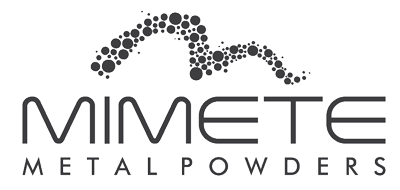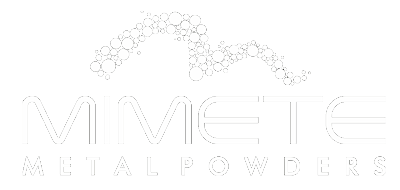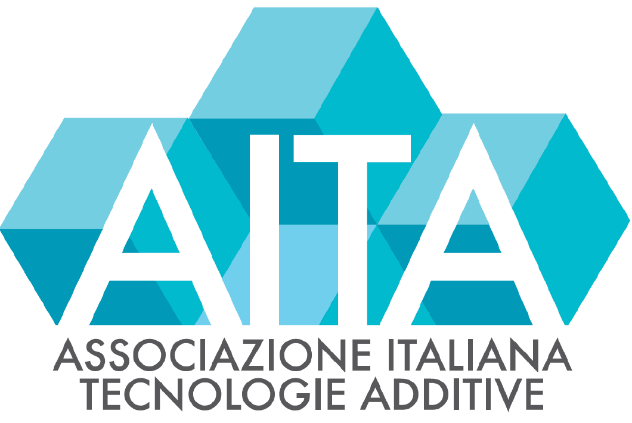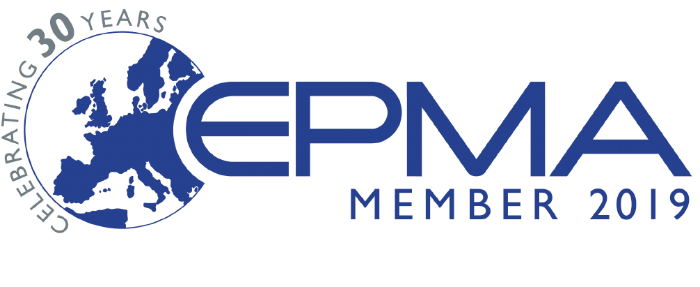Privacy Policy
Fomas Group complies fully with Regulation EU 2016/679 (GDPR) on the processing of personal data, devoting utmost attention to the processing of personal data, including those acquired, if any, when browsing this website.
Fomas Group processes data in order to:
- Extract anonymous statistical information on the use of the website and ensure its operation (navigation data);
- Respond to requests submitted by users, by acquiring their e-mail addresses and other personal data contained in the e-mails (Data provided voluntarily by the user)
In order to consult most of the information available on the site it is not necessary to communicate your personal data; however, for some areas of the website it may be necessary to provide Fomas Group with such data.
The data collected as a result of registration will be processed in order to manage your account and, only with your prior consent, to establish business relationships.
The Privacy policy is provided upon data collection.
Access to the data collected while browsing the website is limited to employees who need them to perform their duties and who have received, as regards the activities to be performed, the necessary written instructions about the rules they must scrupulously follow while processing such data.
Additionally, any third parties in charge of certain activities must also comply with the current regulations whenever they process data.
In order to optimise or facilitate the browsing experience, Fomas Group may use cookies, i.e. computer strings sent by the service provider’s server to the user’s computer, accompanied by an identifier which allows a subsequent use, for a future identification of the computer and the browsing preferences expressed previously.
You can decide to be informed of the presence of cookies in order to disable them by setting your Internet browser accordingly. If you disable cookies, the browsing efficiency can be compromised.
You can enforce your rights, recognised by the binding legislation and in particular by articles from 15 to 22 of the GDPR, such as:
- Right of access: the right to obtain from the Controller confirmation as to whether or not personal data concerning you are being processed, and, where that is the case, access the personal data and additional information on their source, purpose, categories of data processed, recipients of data communication and/or transfer, etc.
- Right of rectification: the right to obtain from the Controller without undue delay the rectification of inaccurate personal data and to have incomplete personal data completed, including by means of providing a supplementary statement.
- Right to erasure: the right to obtain from the Controller the erasure of personal data without undue delay where one of the following grounds applies:
- Right to object: right to object, at any time, to processing of personal data whose legal ground is a legitimate interest of the Controller.
- Right to restriction of processing: the right to obtain from the Controller restriction of processing where the accuracy of the personal data is contested (for a period enabling the Controller to verify the accuracy of the personal data), where the processing is unlawful and the Data subject opposes the processing, where the personal data are required by the Data subject for the establishment, exercise or defence of legal claims, where the Data subject has objected to processing pending the verification whether the legitimate grounds of the Controller override those of the Data subject.
- Right to data portability: the right to receive the personal data in a structured, commonly used and machine-readable format and the right to transmit those data to another controller, only where processing is based on consent or on a contract and only for data processed by automated means.
- Right not to be subject to automated decisions: the right not to be subject to a decision based solely on automated processing, including profiling, which produces legal effects concerning the Data subject or similarly significantly affects him or her, except if the decision is necessary for entering into, or performance of, a contract or is based on the Data subject’s explicit consent.
- Right to lodge a complaint with a supervisory authority: without prejudice to any other administrative or judicial remedy, every Data subject shall have the right to lodge a complaint with a supervisory authority if the Data subject considers that the processing of personal data relating to him or her infringes the GDPR.
Fomas Group, represented by its Board of Directors, is the Controller of the processing of personal data collected through this website and guarantees data confidentiality by taking all necessary measures to store them securely and to protect them from unauthorised access.
To this end, Fomas Group has appointed a Privacy Manager, domiciled at the Company, who may be contacted to gain further information on Privacy, or to exercise the rights set out in the Code. Any requests must be addressed to:
FOMAS Group Privacy Manager
Via Martiri della Liberazione, 17 – 23875 Osnago LC Italy
Or an e-mail can be sent to:
The above addresses can also be used to obtain information on our partners to which we assign part of our normal operations.
Fomas Group reserves the right to amend the terms of the Privacy Policy in order to comply, at any time, with current legislation and market practices.
Privacy policy and cookies management
Reasons behind this Policy
This policy describes how the website is managed in relation to the processing of personal data of users who browse it.
This Policy is displayed pursuant to art. 13 of the GDPR to those who interact with the Fomas Group’s web services which are accessible electronically from the address:
www.fomasgroup.com
corresponding to the homepage of the Company’s official website.
The Policy is also based on Recommendation no. 2/2001 that the European authorities for the protection of personal data, gathered in the Working Party established by art. 29 of Directive 95/46/EC, adopted on 17th May 2001 in order to identify certain minimum requirements for collecting personal data online, and, specifically, the methods, timing and nature of the information that the data controllers must give users when the latter connect to web pages, regardless of the purpose of the link.
Data controller
As a result of browsing this website, data relating to identified or identifiable natural persons may be processed. The Data controller is Fomas Group, with registered office in Via Martiri della Liberazione, 17 23875 Osnago (LC) – Italy.
Place of data processing
The processing connected to the web services of this site is performed at the Company’s registered office, in Via Martiri della Liberazione, 17 23875 Osnago (LC), Italy, by personnel in charge of the Company’s computer services as well as by technical staff of the aforementioned company, in their capacity as the processors.
Types of data processed
Navigation data
The computer systems and software procedures used to operate this website acquire, during their normal operation, some personal data whose transmission is implicit in the use of Internet communication protocols. This information is not collected to be associated with identified data subjects but, by its very nature, through processing and association with data held by third parties, could enable user identification. This category of data includes IP addresses or domain names of the computers used by users connecting to the site, the addresses in URI notation (Uniform Resource Identifier) of the requested resources, the time of the request, the method used to submit the request to the server, the size of the file obtained in response, the numerical code indicating the status of the response given by the server (successful, error, etc.) and other information relating to the user’s operating system and computer environment. These data are used for the sole purpose of obtaining anonymous statistical information on the use of the website and verifying its proper operation. The data could be used to ascertain responsibility in the event of any IT crimes to the detriment of the website: except for this possibility, at present the data on web contacts persist for the time specified in the tables below.
Data provided voluntarily by the user.
By sending optionally, explicitly and voluntarily e-mails to the addresses indicated on this site (e.g. for submitting complaints, reporting claims, requesting information) the sender’s address, necessary to respond to the requests, as well as any other personal data entered in the message are acquired. Specific summary information is shown or displayed on the pages of the website offering particular services such as “Join us”. Personal data will not be disseminated.
Cookies.
Fomas Group’s Cookies
Fomas Group’s website uses cookies, i.e. “short text strings” containing information that can be saved on the user’s computer when the browser calls the website. Thanks to cookies, the server sends information that will be re-read and updated every time the user visits the website again. In this way, the website can automatically adjust to the user, improving the browsing experience. In addition, cookies can provide the site operator with anonymous information on user navigation, also in order to obtain statistical data on the use of the site so as to enhance its performance. The information collected through cookies can also be used to build a “profile” of the preferences expressed by the user while browsing, in order to customise marketing messages.
The existing types of cookies and the cookies used by the Company are described below.
- Navigation cookies. They are essential to browse the site using all its features, such as maintaining the session and access to restricted areas. They are strictly necessary, as without them it would be impossible to provide the services requested. These cookies do not collect information to be used for commercial purposes.
- Feature cookies. They allow the user to navigate according to a series of selected criteria (for example the language) in order to provide the user with a better browsing experience. The information collected by this type of cookies is anonymous.
| Name | Retention | Notes |
| .ASPXANONYMOUS | 69 days, 10 hours and 40 minutes | It is used for site authentication and recognition of the logged in user. |
| ASP.NET_SessionId | Session | Used by the .NET framework |
| . DOTNETNUKE | Session |
Used by the DNN platform |
| __RequestVerificationToken | Session | |
| LastPageId | Session | |
| USERNAME_CHANGED | Session | |
| __atuvc | Session | |
| __utma | 2 years | |
| __utmb | 30 minutes | |
| __utmc | Session | |
| __utmt | 10 minutes | |
| __utmz | 182 days, 11 hours | |
| cb-enabled | 1 second | |
| dnn_IsMobile | Session | |
| language | Session | |
| fomas-hr-tokenid | 30 days when the button Remember is used | It is used for site authentication and recognition of the logged in user. |
- Analytics cookie. They collect and analyse information on the use of the website by visitors (pages visited, number of accesses, time spent on the site, etc.) in order to optimise the management of the website. These cookies do not collect information that can identify the user in any way.
No cookies of this type are used.
- Profiling cookies. They are designed to create user profiles and are used to send targeted advertising messages, in line with the preferences expressed by the user while surfing the Internet. They require the user’s consent which may be revoked at any time.
No cookies of this type are used.
For information on how to change cookie settings from your browser, select it below:
Chrome – Firefox – Internet Explorer – Opera – Safari
Optional provision of data
Except for navigation data, the user is free to provide the personal data contained in the request e-mails sent to the e-mail addresses displayed on the site. Failure to provide such data may make it impossible to receive a response.
Processing methods
Personal data are processed with automated tools for the time strictly necessary to achieve the purposes for which they were collected. Specific security measures are adopted to prevent data loss, illicit or improper use and unauthorised access.







